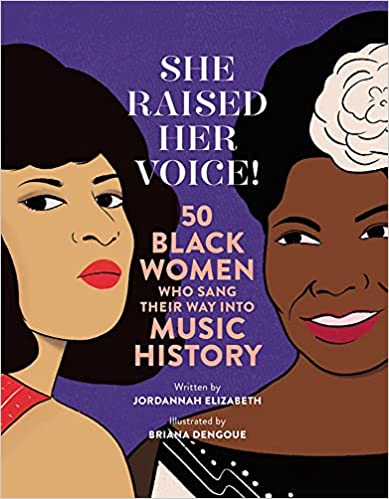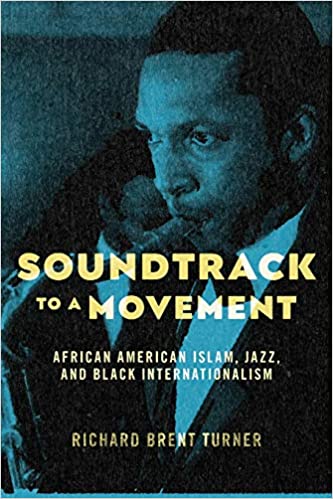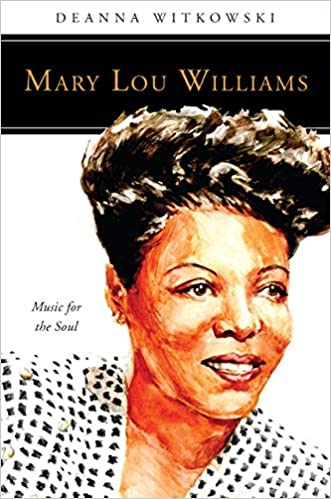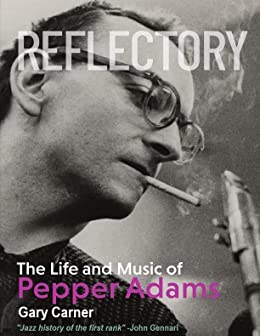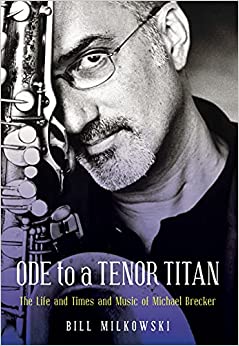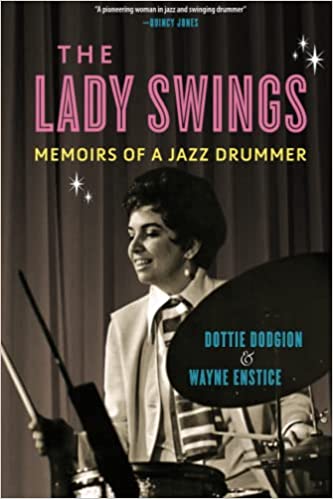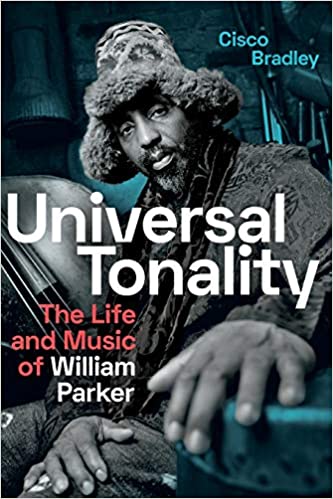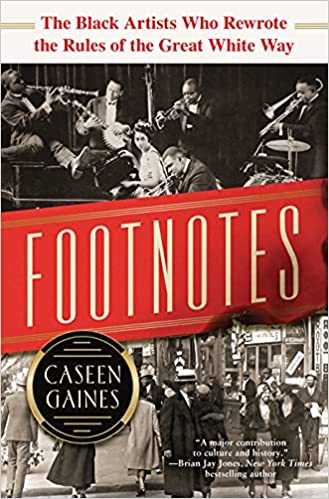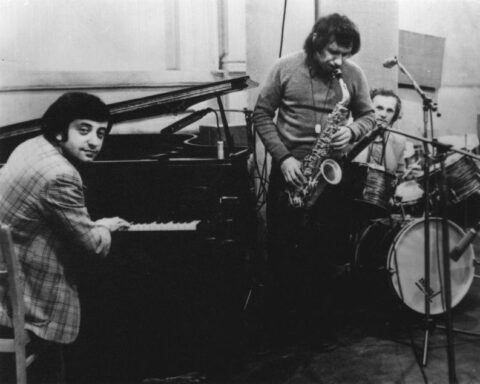It is my esteemed honor to have won the JJA’s 2022 Award for Book of the Year About Jazz: History, Criticism and Culture for She Raised Her Voice! 50 Black Women who Sang Their Way into Music History, illustrated by Briana Dengoue, from Running Dog Press.
At 35-years-old, I’m proud to have five books under my belt, a column here at JJANews and hundreds of articles published.
Firstly, it has been a dream of mine to win a JJA award for a few years now. I never said it aloud, but I’d quietly scroll through the nominations each year, not seeing my name and thinking “I’m just going to work harder. I’m going to earn this.” That attitude, before receiving an agent or book deal, is the right one to have as the first morsel of any form of success.
“How’d you get get a manager after you got the win?/ I bet you’ve got somebody that’s smarter than your other friends/Give them a percentage and see what happens then.” That’s from Drake’s song “When to Say When,” which occurs to me when I think about business in any respect.
When it comes to publishing, my story concerning Raising Her Voice is unique. Hachette Book Group, an imprint of one of the big-four publishers, reached out to me cold and offered me a sizable book deal. I wasn’t even querying at that time. I hadn’t submitted any proposals for a couple of years.
An offer from a publisher out of nowhere happens about 0.1% of the time. I do have an agent — Carol Taylor, editorial director of McKinnon Literary. But again, the offer was made to me directly. I met my agent through my friend and mentor Michael Gonzales. This is where the Drake quote comes in – I didn’t reach out to a million different agents with cold queries. I asked people I trusted to help me make connections. If you are a member of JJA, you naturally have connections through this network and community. Never hesitate to ask for suggestions and introductions.
That said, Publisher’s Weekly, Publisher’s Marketplace and Reedsy (a UK-based literary resource) are great sites to help you prepare to land an agent. In order to receive an agent the most important thing you’re going to have to know is how to assemble a book proposal. I just wrote one for my agent yesterday and included:
- Book synopsis
- About the author
- Competing titles
- Sample chapter
- Chapter Overview
Some agencies will want a cover letter and a marketing plan, but since I’ve been working with my agents for a few years I kept my proposal simple, only four pages.
You can find literary agencies through a general search or through the sites mentioned above. Again, I was connected through my agent via a mentor, so I didn’t have to do a dedicated search. If you have friends or family who have agents, a referral is probably the best way to land one.
If your agent likes your proposal, they will send it to editors at publishing houses.
Some boutique publishers and university presses don’t offer advances, but instead a percentage of sales of the books.
Typically only the big-four houses (Penguin/Random House, Hachette Book Group, Harper Collins, Simon & Schuster and Macmillan) offer larger advances. Royalties are to be considered in the acquisition process, and auxiliary rights. It’s wise to consult a lawyer knowledgable about book contracts before signing a deal with a publisher. Groups like the Authors Guild and National Writers Union may offer counsel about issues along those lines.
An editor at a book publisher is a bit different than an editor at a periodical. An editor at a publisher is your advocate and is usually the person who pushed to get your book approved by the rest of their team. Along with editing your book they connect you with your publicists, give advice and help with the tone and style of the book. They work with you throughout the copyediting phase of the book as well, and may even serve as your therapist. Your editor is your everything! But respect their boundaries.
I send proposals straight to my editor at my publisher if the book is a children’s book. Not many authors
get to pitch and propose straight to their editors. Most times one needs an agent to receive a deal from any publisher truly of note.
My first publisher Zer0 Books did allow authors to send proposals straight through an automated digital submission system. This was in 2015, so I’m not sure if they are taking submissions in this manner any longer. Besides She Raised Her Voice, I have published one book with an indie publisher (Don’t Lose Track, Zer0 Books), one as a self-publisher (The Warmest Low, Publik / Private Small Press), and, with a major publisher, Astrology For Black Girls (Running Dog Press). A Child’s Introduction to Hip-Hop is forthcoming (from Black Dog and Leventhal).
Jazz books seem to be popular at this time — just take a look at the amazing JJA Awards book nominees! depicted throughout this post! And congratulations to Deanna Witkowski for winning best Biography/Autobiography of the Year).
So don’t hesitate to begin writing your book, maybe based on articles you’ve written, your deep research and knowledge gained over the course of your career.
Do your research and find out which process is right for you. You can and will find success.

